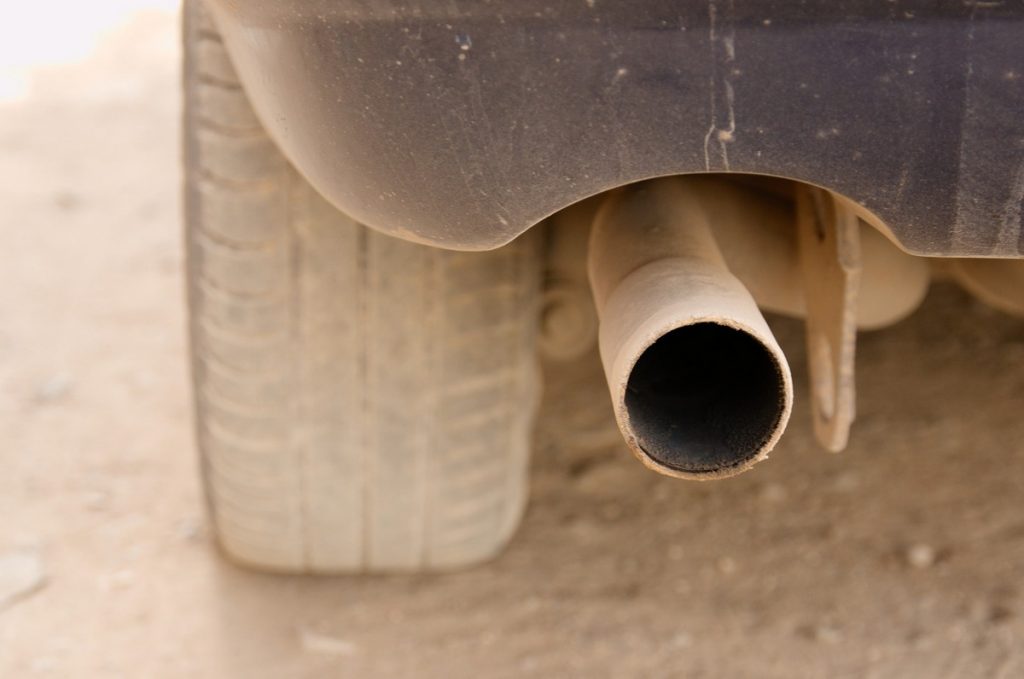In Part One of this post, we looked at the air quality problems associated with diesel cars. In this part, we’ll ask if modern diesels have addressed this, as well as the issue of climate change.

Are modern diesels ‘dirty’?
We spent most of Part One looking at the damage that diesel emissions cause to health. To summarise: it’s not good at all. However, many motoring journalists have pointed out that these problems are associated with older diesels. Things, they say, have now moved on. How true is that?
Awareness of the problems caused by diesels has led to stricter emissions standards for manufacturers. For example, in 2000, Euro 3 standards permitted diesels to produce 0.5g/kg of NOx. By September 2014, Euro 6 standards had lowered this to 0.08g/kg for new diesel cars. In the same year, the targets for petrol cars was 0.06g/kg.
This means that for more recent cars, there’s far more of an overlap between the NOx emissions of petrol and diesel cars. So is the pollution problem just older diesels?
Undoubtedly, modern diesels are far cleaner than they used to be. What muddies the water considerably is the question mark over the accuracy of testing. After ‘Dieselgate’ — where manufacturers were found to have fudged their emissions figures — there is a lot less faith in laboratory tests. A report by the International Council on Clean Transportation found that in the real world, diesel emissions were seven times higher than the permitted EU standards. What’s more worrying is that these were 2014, Euro 6 standard cars.
The same study points out that although the EU lowered NOx emission limits for diesel cars by 85% between 2000 and 2014, actual road emission levels only decreased by 40%.
The EU has now recognised the limitations of lab-based tests. From September 2017, vehicles have had to meet the Worldwide Harmonised Light Vehicle Test Procedure (WLTP) and the Real Driving Emissions test (RDE1). The latter tests vehicles actually on the road for 90-120 minutes over 29.92 miles.
These tests are likely to force manufacturers to produce diesels with substantially lower NOx and PM emissions. It will be a challenge. Independent analysis recently showed that “….70% of the diesels launched in 2016 and 2017 emit at least double the official NOx limit when on the road.”
Climate change and the case for diesel
If we focus purely on air quality, then, diesel does not fare very well. Modern diesels have made huge strides forward in terms of reducing harmful emissions, but the evidence suggests that they have a way to go yet.
So diesel is damned, case closed? Not quite.
Let’s not forget why diesel ownership was so heavily promotedfrom the late 1990s onwards. Diesels produce significantly less carbon dioxide than petrol vehicles. And carbon dioxide is the main driver of man-made climate change.
Climate change is real, it’s here, and it’s already affecting the lives of millions of people. As environmental problems go, they simply don’t get any bigger. According to Sir David King, a former Special Representative on Climate Change, rising global temperatures represent, “an existential threat to all human civilization” — and possibly the greatest we have ever faced.
The 2015 Paris Accord set out the crucial importance of limiting global temperature rise to 2°C, beyond which catastrophic changes threaten to exceed our ability to adapt.
There’s a credible argument that diesel has a role to play in reducing CO2 emissions. Recently, the Society of Motor and Traders noted a 0.8% increase in CO2 emissions from new UK cars. It’s the first in 20 years and it’s directly attributable to the 30% drop in diesel sales. Without this drop in diesel sales, we would have anticipated a further perhaps substantial drop in CO2, given that new vehicles are significantly more economical.
And from this point of view, diesel starts to sound like an environmental hero.
Diesel decisions
We know that when it comes down to it, most people will make their buying decision based on personal factors — such as economy and likely taxation charges. That’s human nature. But many motorists will at least factor in some of the wider environmental consequences to their decision.
When it comes to the best environmental choice, electric vehicles are a no-brainer. In terms of lifetime environmentl impact and air quality, internal combustion engines don’t come close. Unfortunately, for many of us right now, simple economics and lack of charging infrastructure mean that electric cars aren’t a viable option. And that leaves us with petrol or diesel.
As we’ve seen, diesel has both environmental advantages and disadvantages. The answer to what outweighs what may depend on your circumstances and what sort of driving you do. The health risks of diesel are highest in ‘hot spots’, such as urban environments, where NOx and PMs accumulate. Their CO2 reducing benefits really come into play for drivers who do a lot of motorway miles. Based on this, the RAC propose the following: for owners who do most of their driving on urban roads, and who don’t clock up many miles annually, petrol is the best choice. But for drivers who cover longer distances, and do fewer urban short-trips, Euro 6 diesels remain a sound option.
Whether your vehicle is Skoda, VW, Audi or SEAT (or any other marque), WVS are here for your MOT, servicing and repair needs. Please get in touch with our friendly team.

